WA election: West steps through the political looking-glass
This year’s WA election campaign is a topsy-turvy world where up is down and right is left. Total control for Mark McGowan looks to be only weeks away.
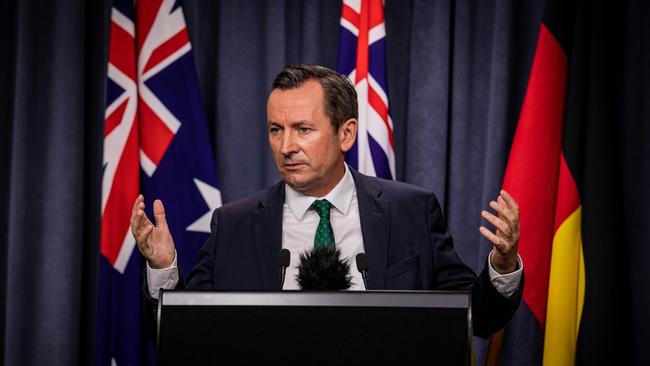
Last Sunday night, as a core group of West Australian Liberal Party MPs convened to discuss the party’s election campaign, the beleaguered group finally acknowledged the reality that had been staring them in the face for months: they would not be forming the next government.
The focus, they decided, instead would shift to trying to salvage a viable opposition. Since then, the thrust of the campaign under the Liberals’ young leader Zak Kirkup has been to warn of the risks of Labor taking “total control” of WA’s parliament.
The remarkable state of play is a testament to the incredible popularity of WA Premier Mark McGowan and the dysfunction that has gripped the Liberal Party since it was tipped out of power in 2017.
It is still three weeks to the election, but McGowan is a certainty. According to Newspoll results published today, Labor enjoys an incredible 68-32 lead over the Liberals on a two-party-preferred basis.
McGowan’s strong leadership through the first few months of the pandemic and his popular closure of the state’s borders have given him an approval rating rarely, if ever, seen in Australian politics.
“In Western Australia, certainly post World War II this is unprecedented,” says Peter Kennedy, author of the anthology Tales from Boomtown: Western Australian Premiers from Brand to McGowan. “And neither major party since World War II has been at such a low ebb as the WA Liberal Party is right now.”
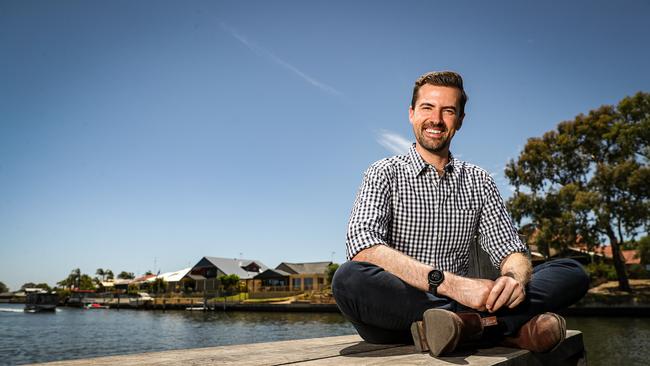
This year’s WA election campaign is a topsy-turvy world where up is down and right is left.
We have union-funded radio advertisements attacking Labor — the long-running feud between the CFMEU and McGowan centres on the government’s plans for a new harbour at Kwinana to replace the existing Fremantle port.
We have a Liberal Party that wants coal-fired power stations closed by 2025, and a Labor leader who has channelled Scott Morrison in attacking the plan as one that would push up power bills, destabilise the energy grid and cost jobs.
We have a Labor Party that has copied the Liberal Party’s “L-plate” advertising campaign — used so successfully against Mark Latham in 2004 — in its own attack ads on Kirkup. We have a Labor Party that casts itself as the party of fiscal conservatives, while it’s the Liberals who have been making grand uncosted promises about ambitious projects such as a hydrogen export plant and the sinking of parts of Perth’s rail network.
It is Labor, rather than the Liberals, that will enjoy the proceeds of a lavish fundraising dinner at the Royal Freshwater Bay Yacht Club in Perth’s Golden Triangle, supported by billionaire property developer Nigel Satterley.
And we have a Liberal leader who has called for compassion in the treatment of Perth’s homeless community, up against a Labor government that exercised special powers to force the removal of a tent city in Fremantle.
McGowan is focused on stealing the typically rusted-on Liberal voters who are happy with his handling of the pandemic and his closure of the state’s borders. Kirkup’s more progressive policies have caused some angst for many of his colleagues, who fear they may help McGowan in meeting his aim.
When Liberal Party hopefuls were contemplating the sort of scenarios that could somehow pull their party back into contention, there was one set of unlikely circumstances that jumped out. Maybe, just maybe, if a series of WA government blunders saw coronavirus re-emerge after almost 10 months, and maybe if the government botched its response, McGowan’s halo could slip.
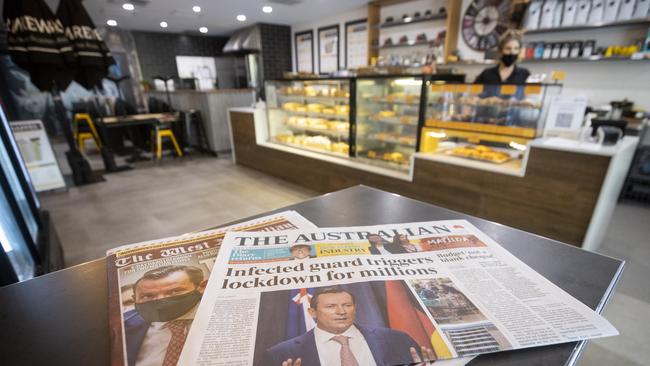
That exact scenario played out across two weeks in late last month and early this month, when a hotel quarantine security guard contracted the virus. The worker hadn’t been required to wear a face mask as he sat outside the room of COVID-positive patients, had not been subject to the daily saliva testing already in place in other states, and had not been prohibited from moonlighting in other jobs.
And the government’s response to the case — an immediate five-day lockdown of two million people, including communities more than 300km away, and a set of community mask requirements that defied international health advice and, at times, common sense — was proved to be an over-reaction when not a single other case emerged.
But McGowan has emerged from the situation hoped for by some Liberals without even a scratch. According to Newspoll, 88 per cent of voters are satisfied by his performance.
McGowan’s unscathed escape from the Perth lockdown continues the charmed run he has enjoyed since he found himself up against a Colin Barnett-led Liberal government four years ago that was firmly on the nose of the public.
The former navy lawyer’s two decades of persistence in politics was rewarded with a landslide election win, and he now looks an absolute certainty to deliver an even better result in a few weeks.
Iron ore prices are booming, pumping billions into Treasury’s coffers, and McGowan will be about as close to having control of WA’s upper house as any Labor leader could hope for. Labor holds 13 of the 36 seats in the Legislative Council, and has needed to rely on support from crossbench parties including the Greens, the Shooters, Fishers and Farmers, One Nation and the Liberal Democrats to pass legislation.
Labor securing a majority in its own right seems highly unlikely because of WA’s electoral system, which makes each rural vote six times more valuable than metro votes, but there is a strong likelihood that it will be able to combine with the Greens to control the upper house.
What will be left of the Liberal Party when the dust settles is the other main unknown.
Kirkup’s own seat is in genuine danger, given he holds it by a margin of only 0.8 per cent, but he has been an effective local member during his time in parliament. It would be another sad reflection of the Liberal Party’s lack of talent development if its brightest young star ends the election burnt out and out of a seat.
Other Liberal seats such as Hillarys (0.4 per cent) and Darling Range (3.5 per cent), and the seats of Riverton and Scarborough — held by former leaders Mike Nahan and Liza Harvey respectively — look almost certain to fall. The Newspoll data suggests the real possibility that the Liberals will emerge with fewer lower house seats than the Nationals.
Kirkup took over the Liberal leadership in December last year despite being in just his first term as an MP and he has been campaigning at a frantic pace, throwing out policies and promises on an almost daily basis in an attempt to win any sort of traction.
It hasn’t all been smooth. One candidate was dumped after it emerged she had touted conspiracy theories linking 5G to coronavirus. The Liberals have been at odds with the Nationals over the fate of WA’s Royalty for Regions scheme, and many of Kirkup’s colleagues have been deeply concerned about the implications of the party’s energy and emissions policy.
McGowan’s campaign, meanwhile, has been relatively quiet. His promises include an extension of reductions in TAFE fees, capping airfares in regional WA and the widespread installation of solar panels at schools. One of the campaign’s biggest commitments has been for a $152m redevelopment of the Peel Health Campus, which just happens to sit in the middle of Kirkup’s marginal seat.
But there has been little by way of imagination-grabbing big-picture visions. Instead, McGowan has been content to just stick to his lines about Kirkup and the Liberals being too inexperienced and unready to govern.
Labor’s refusal to be drawn into a battle of policy ideas means that while West Australians know who their premier will be, they don’t know much about what to expect. McGowan will begin his second term with an incredible financial tailwind behind him, thanks to record-high iron ore exports and soaring iron ore prices. More than $10bn of mining royalties are expected to flow into government coffers this financial year, an unprecedented windfall.
Exactly who will be responsible for managing those finances remains to be seen, with the government yet to announce who will take over the treasurer’s role from the retiring Ben Wyatt. (Health Minister Roger Cook and Transport and Planning Minister Rita Saffiotti are the two leading candidates.)
Wyatt was a considerable force in maintaining Labor’s financial discipline through the government’s first term, and his departure may embolden factional party elements keen to see money flow into pet projects.
Kennedy says Wyatt’s absence will be significant. “He brought a sense of rigour into the finances, and that will be a challenge in the second term — keeping a lid on spending,” he says.
McGowan, meanwhile, enjoys a phenomenal level of popularity in the state. One man recently got a tattoo of McGowan wearing a bandana, and Generation Z social media platform TikTok is full of young women kissing his likeness. On Facebook, there’s even a page titled “Mark McGowan for Porn Star”.
It’s a breadth of popularity not seen by a Labor leader in WA since the heyday of Brian Burke and, like Burke, McGowan has cultivated strong ties with the WA business community that have been seized on by some critics as echoing Burke’s WA Inc era.
A controversial deal to offload the prime East Perth Power Station riverfront development site to local billionaires Kerry Stokes and Andrew Forrest continues to cause headaches for the government, while the caretaker-eve environmental approvals for a big gas project part-owned by the Stokes-backed Beach Energy has only fed perceptions that the government is too close to parts of the business community.
Forrest’s agricultural company Harvest Road Group picked up a $700,000 government grant towards a new aquaculture facility in Albany, and the hydrogen arm of Forrest’s Fortescue Metals Group — which made $US6.6bn ($8.4bn) in underlying earnings in the past six months — has received $2m from WA taxpayers towards its renewable hydrogen mobility project in the Pilbara.
The Australian revealed this week that the failure of McGowan’s office to put a price cap on the royalty relief given to mining company Mineral Resources when it took over the Koolyanobbing iron ore mine had cost WA taxpayers more than $200m in forgone royalties. MinRes, whose founder Chris Ellison is one of Perth’s richest men, has generated more than $1bn in earnings from the mine.
This paper also revealed earlier this year that the government’s failure to put a cap on its $20,000 building bonus meant taxpayers had forked out subsidies for dozens of new homes in some of Perth’s wealthiest suburbs.
And it took an inquiry in NSW to uncover the alleged money-laundering taking place in and around Perth’s Crown casino.
But just like the security guard incident of a few weeks ago, none of those issues have left a mark on McGowan. Total control looks to be only three weeks away.


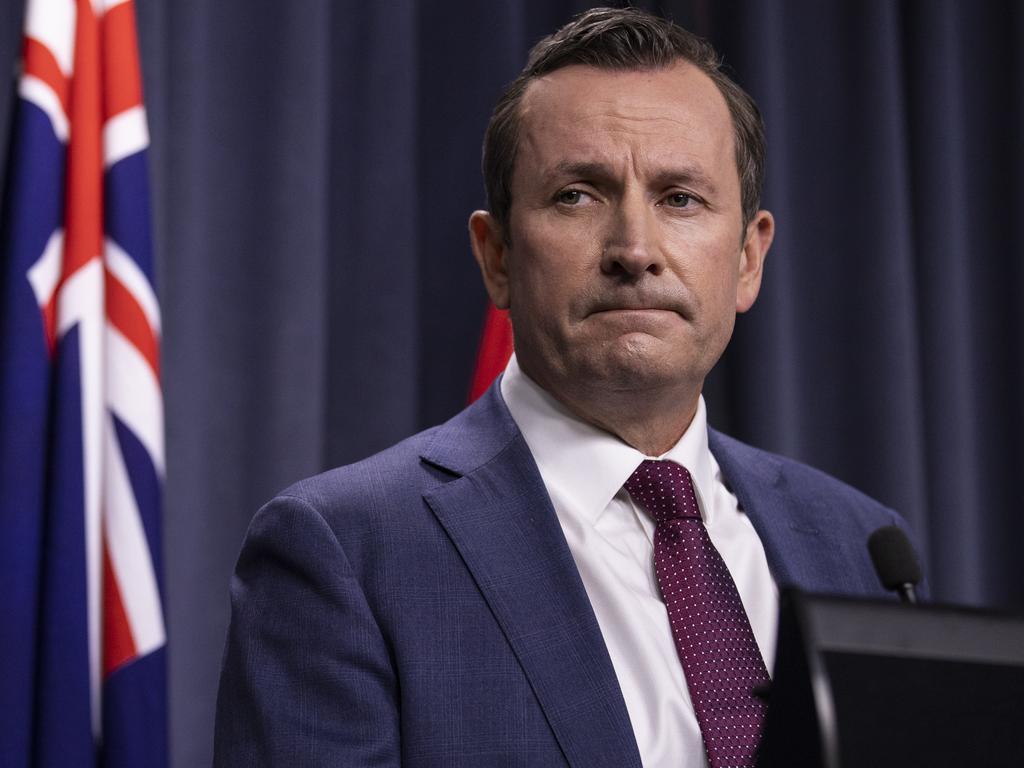
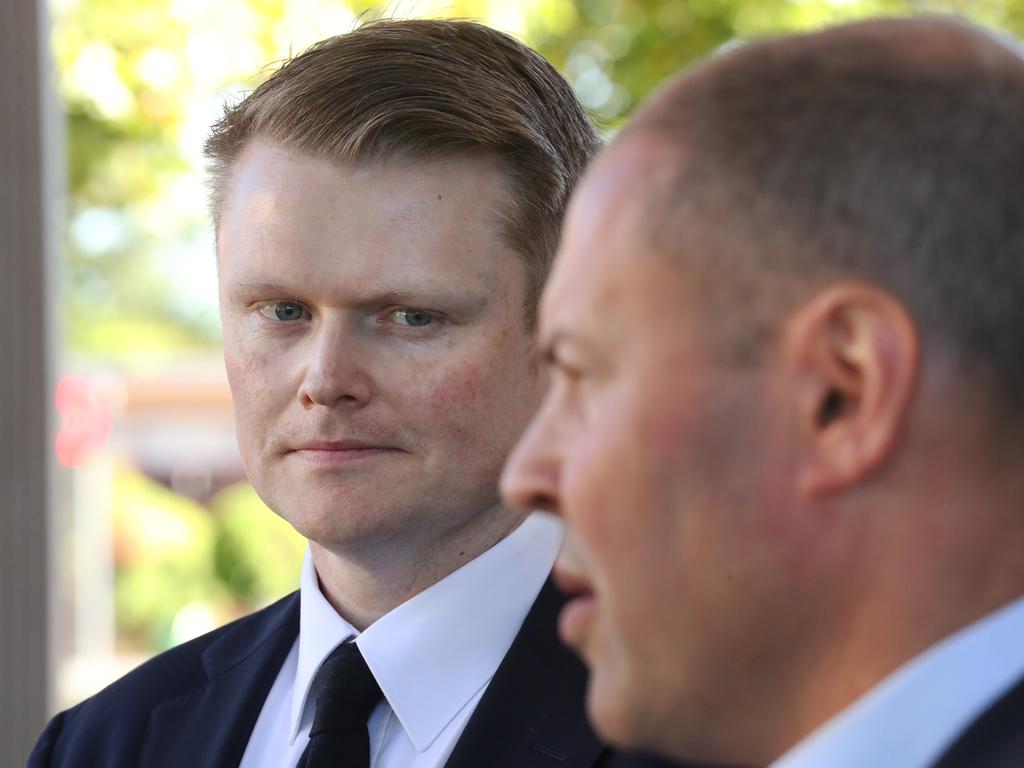
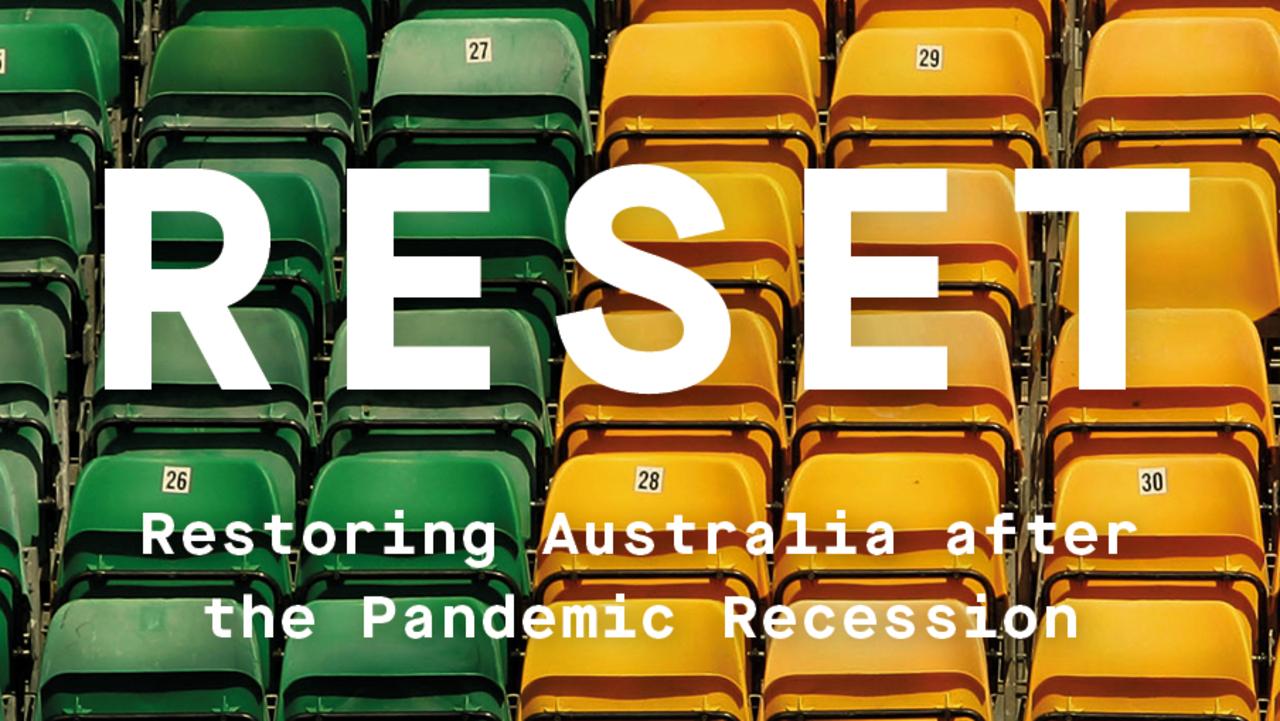
To join the conversation, please log in. Don't have an account? Register
Join the conversation, you are commenting as Logout